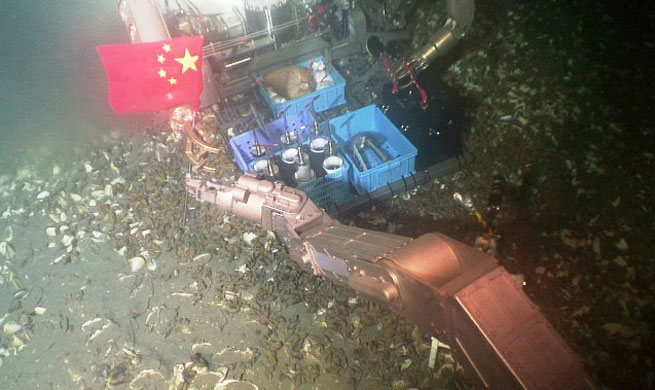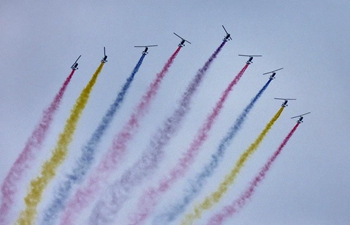BEIJING, May 3 (Xinhua) -- Building a space station, probing Mars, setting up a lunar base and going deeper into the universe - artificial intelligence will be at the cutting edge of China's space odyssey.
China is stepping up development of artificial intelligence (AI) technology to support its space programs, Zhang Duzhou, a member of the Chinese Association of Automation and the Chinese Society of Astronautics, told a space conference in Harbin, capital of northeast China's Heilongjiang Province.
Back in 1995, Yang Jiachi, a leading contributor to the development of China's first satellite about half a century ago, proposed developing technology for the intelligent autonomous control of spacecraft.
Experts are now developing AI technologies in visual image recognition, visual tracking, rendezvous and docking, navigation and positioning, mission planning and spacecraft fault diagnosis, said Zhang.
Some Chinese spacecraft have been endowed with the preliminary ability of autonomous task-planning.
For instance, Tianzhou-1, China's first cargo spacecraft launched in April 2017, accomplished autonomous fast rendezvous and docking with the Tiangong-2 space lab. The rendezvous and docking time was shortened from three days to six and a half hours thanks to AI.
AI technology also aided the Chang'e-3 lunar probe, launched in 2013, to touch down softly on the Moon. The probe's lander was capable of hovering and choosing a suitable landing site on its own.
However, Zhang said, China's space AI is still "weak". If AI technologies are divided into six levels, China is at level two or level three. The technology at level six, the highest level, can enable spacecraft to perform automatic reasoning and independent thinking in orbit.
"Our aim is to reach level six," Zhang said.
AI technology is especially useful for spacecraft that are expensive, hard to repair, doing complicated tasks, deployed in a rigorous space environment, or so far from Earth that they respond to directions very slowly, said Zhang.
With AI, spacecraft could acquire the abilities of self-learning, autonomous perception and planning and self-decision, thus lowering the cost of operation and increasing the quality, safety, reliability and flexibility of space missions.
The development of AI will bring breakthroughs to China's space industry, he added.
















